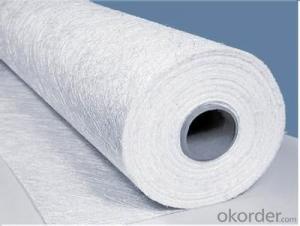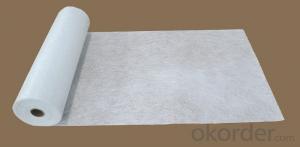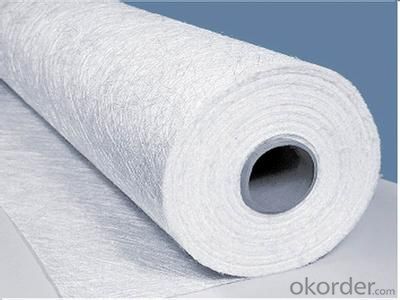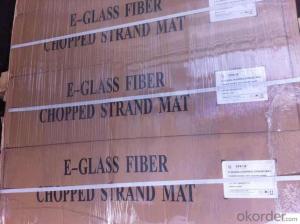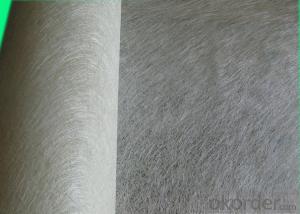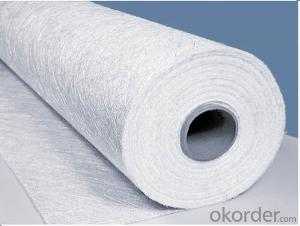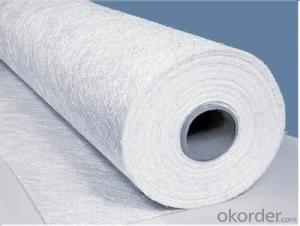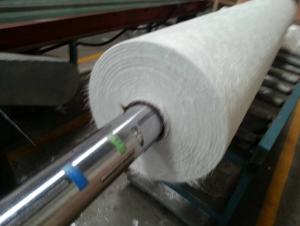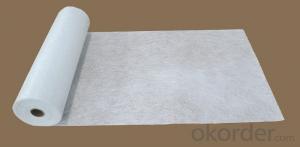Fiberglass Mat Tissue E Glass Powder Chopped Strand Mat for Filament Winding
- Loading Port:
- Shanghai
- Payment Terms:
- TT OR LC
- Min Order Qty:
- 20000 kg
- Supply Capability:
- 200000 kg/month
OKorder Service Pledge
OKorder Financial Service
You Might Also Like
1.Brief Introduction
E-Glass Powder Chopped Strand Mat is made of randomly distributed chopped strands held together by a powder binder.
It is compatible with UP, VE, EP, PF resins.
The roll width ranges from 50mm to 3300mm.
2.Product Features
Fast breakdown in styrene
High tensile strength, allowing for use in hand lay-up process to produce large-area parts
3.Product Specifications
Property | Area Weight | Moisture Content | Size Content | Breakage Strength | Width |
(%) | (%) | (%) | (N) | (mm) | |
Property | IS03374 | ISO3344 | ISO1887 | ISO3342 | |
EMC80P | ±7.5 | ≤0.20 | 8-12 | ≥40 | 50-3300 |
EMC100P | ≥40 | ||||
EMC120P | ≥50 | ||||
EMC150P | 4-8 | ≥50 | |||
EMC180P | ≥60 | ||||
EMC200P | ≥60 | ||||
EMC225P | ≥60 | ||||
EMC300P | 3-4 | ≥90 | |||
EMC450P | ≥120 | ||||
EMC600P | ≥150 | ||||
EMC900P | ≥200 |
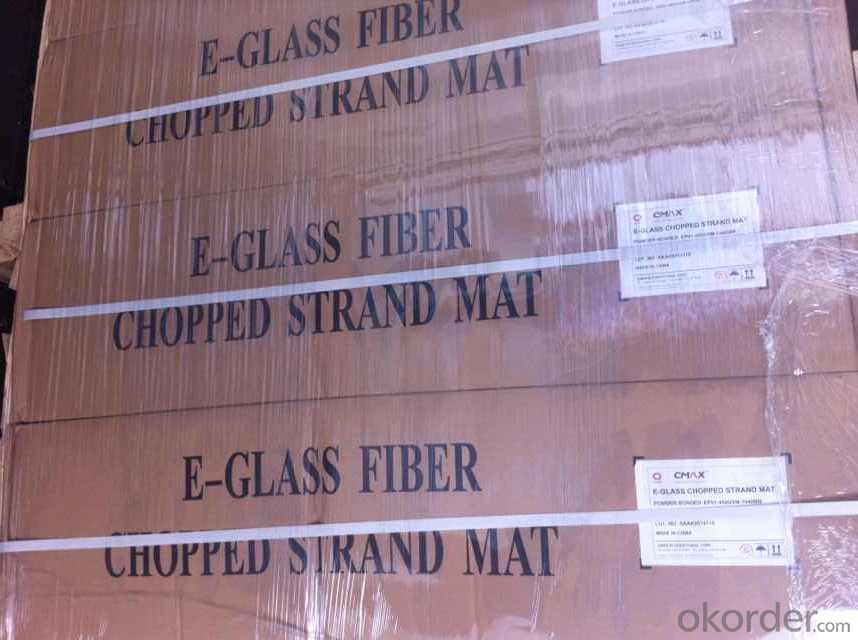
4.FAQ
Storage:
Unless otherwise specified, Chopped Strand Mat should be stored in a dry, cool and rain-proof area. It is recommended that the room temperature and humidity should be always maintained at 15℃~35℃ and 35%~65% respectively.
- Q: How does fiberglass mat tissue perform in terms of air permeability?
- Fiberglass mat tissue typically has low air permeability. The tight weave and construction of the fiberglass strands used in the mat tissue make it less porous, allowing very little air to pass through it. This characteristic makes fiberglass mat tissue a suitable material for applications where air permeability needs to be minimized, such as in insulation or filtration systems. By restricting the passage of air, fiberglass mat tissue helps to enhance thermal insulation properties and improve filtration efficiency.
- Q: How long does fiberglass mat tissue last?
- The lifespan of fiberglass mat tissue can vary depending on various factors such as its quality, usage, and exposure to external conditions. Generally, fiberglass mat tissue is designed to be highly durable and long-lasting. When properly installed and maintained, it can typically last for several decades. However, it is important to note that fiberglass mat tissue can deteriorate over time due to environmental factors such as UV exposure, moisture, and temperature fluctuations. Continuous exposure to harsh weather conditions, extreme temperatures, or chemicals can accelerate the degradation process. To maximize the lifespan of fiberglass mat tissue, it is crucial to follow the manufacturer's guidelines for installation, maintenance, and periodic inspections. Regular inspections can help identify any signs of wear, damage, or degradation early on, allowing for timely repairs or replacements. It is recommended to consult with a professional or the manufacturer for specific information regarding the expected lifespan of a particular fiberglass mat tissue, as it can vary depending on the specific product and its intended application.
- Q: Can fiberglass mat tissue be used for making insulation blankets?
- Yes, fiberglass mat tissue can be used for making insulation blankets.
- Q: What is the expected lifespan of fiberglass mat tissue in chemical storage applications?
- The expected lifespan of fiberglass mat tissue in chemical storage applications can vary depending on several factors. These factors include the type of chemicals being stored, the concentration of the chemicals, and the specific conditions of the storage environment. Fiberglass mat tissue is commonly used in chemical storage applications due to its excellent resistance to corrosion and its ability to provide structural reinforcement. However, it is important to note that fiberglass mat tissue is not completely impervious to chemical degradation. In general, fiberglass mat tissue can withstand a wide range of chemicals and can have a relatively long lifespan when properly maintained. It is typically designed to last for several years, with some manufacturers offering warranties ranging from 10 to 20 years. However, certain aggressive chemicals or extreme storage conditions may accelerate the degradation process of fiberglass mat tissue. Chemicals with high acidity or alkalinity, extreme temperatures, or prolonged exposure to UV radiation can potentially reduce the lifespan of the material. To ensure the maximum lifespan of fiberglass mat tissue in chemical storage applications, it is essential to carefully select the appropriate type of fiberglass mat tissue that is specifically designed for the intended chemicals and storage conditions. Regular inspections, maintenance, and proper handling of the chemicals can also help extend the lifespan of the material. Ultimately, it is recommended to consult with the manufacturer or a qualified engineer to determine the expected lifespan of fiberglass mat tissue in a specific chemical storage application, as they can provide more accurate information based on the specific circumstances.
- Q: How is fiberglass mat tissue manufactured?
- Fiberglass mat tissue is manufactured by first combining glass fibers with a binder material, usually a water-based emulsion. This mixture is then spread onto a conveyor belt or drum and passed through an oven to dry and cure the binder. The resulting mat is then rolled or cut into the desired dimensions and can be further processed or used as a reinforcement material in various industries such as construction, automotive, and aerospace.
- Q: Can fiberglass mat tissue be used for insulating ductwork?
- Yes, fiberglass mat tissue can be used for insulating ductwork.
- Q: What is the composition of fiberglass mat tissue?
- Fiberglass mat tissue, also referred to as fiberglass mat or fiberglass veil, comprises a blend of fiberglass fibers and a binder substance. The fiberglass fibers utilized in its formulation are typically derived from silica, a naturally occurring mineral, and are esteemed for their exceptional strength and durability. The specific binder substance used in fiberglass mat tissue can differ, but commonly includes materials like urea-formaldehyde, acrylic, or polyester resins. The binder's function is to secure the fiberglass fibers together and provide the mat with structural integrity. Furthermore, the composition of fiberglass mat tissue may incorporate additional additives. These additives may encompass pigments, fire retardants, or coatings, contingent upon the mat's intended application and desired properties. In conclusion, fiberglass mat tissue is an amalgamation of fiberglass fibers and a binder substance, supplemented by other additives as required. This composition enables the material to possess remarkable strength, flexibility, and resistance to diverse environmental factors, rendering it a versatile substance employed in numerous industries including construction, automotive, aerospace, and marine.
- Q: How does fiberglass mat tissue compare to spray foam insulation?
- Fiberglass mat tissue and spray foam insulation differ in terms of their insulation materials, characteristics, and benefits. Fiberglass mat tissue, a woven fiberglass insulation, is commonly used for thermal insulation in walls, roofs, and attics. It effectively resists heat transfer and provides an additional safety benefit with its fire-resistant properties. In contrast, spray foam insulation is a liquid that expands into a solid foam upon application. It fills in cracks and gaps, creating an airtight seal that prevents air leakage and reduces energy loss. It is also known for its soundproofing capabilities. Regarding installation, fiberglass mat tissue comes in large rolls or batts that require cutting and fitting. It must be carefully handled and may necessitate the use of protective equipment due to potential skin and respiratory irritation. On the other hand, spray foam insulation is applied using specialized equipment that sprays the liquid foam onto surfaces. It quickly expands, filling gaps and hardening within a short time. This makes it a convenient choice for insulating hard-to-reach areas or irregularly shaped spaces. In terms of cost, fiberglass mat tissue is generally more economical for purchase and installation compared to spray foam insulation. However, spray foam insulation provides superior air sealing and can result in higher long-term energy savings. In summary, each insulation type has its own advantages. Fiberglass mat tissue excels in thermal insulation, while spray foam insulation is ideal for air sealing and soundproofing. The choice between the two depends on factors such as budget, desired insulation performance, and project requirements.
- Q: What are the key properties of fiberglass mat tissue?
- Fiberglass mat tissue possesses several important properties, making it a versatile material. Firstly, it is composed of fine glass fibers that are randomly oriented and bonded together using a binder. This random orientation gives it greater strength and flexibility compared to other materials. One notable property of fiberglass mat tissue is its high tensile strength. It can endure significant amounts of pulling or stretching forces without breaking, making it perfect for applications that require durability and resistance to mechanical stress. Additionally, fiberglass mat tissue has excellent thermal insulation capabilities. It has a low thermal conductivity, which means it effectively prevents heat transfer. This property makes it ideal for insulation applications, helping to conserve energy and maintain a stable temperature. Another advantage of fiberglass mat tissue is its good chemical resistance. It is not easily affected by exposure to chemicals, acids, or alkaline substances. This makes it a suitable choice for applications like chemical storage tanks or pipes, where resistance to corrosion is crucial. Furthermore, fiberglass mat tissue exhibits outstanding moisture resistance. It does not readily absorb water, making it resistant to rot and decay. This property makes it suitable for outdoor applications or environments with high humidity. Lastly, fiberglass mat tissue is lightweight and easy to handle. It can be easily cut, shaped, and installed, making it a convenient material for various applications. In summary, fiberglass mat tissue possesses key properties such as high tensile strength, thermal insulation capabilities, chemical resistance, moisture resistance, and lightweight. These properties make it a versatile material for use in industries such as construction, automotive, aerospace, and marine.
- Q: Can fiberglass mat tissue be used for thermal insulation?
- No, fiberglass mat tissue is not typically used for thermal insulation. It is primarily used for reinforcing and providing strength to composite materials such as fiberglass sheets or panels. For thermal insulation purposes, other materials such as mineral wool, foam, or cellulose insulation are commonly used.
Send your message to us
Fiberglass Mat Tissue E Glass Powder Chopped Strand Mat for Filament Winding
- Loading Port:
- Shanghai
- Payment Terms:
- TT OR LC
- Min Order Qty:
- 20000 kg
- Supply Capability:
- 200000 kg/month
OKorder Service Pledge
OKorder Financial Service
Similar products
Hot products
Hot Searches
Related keywords
